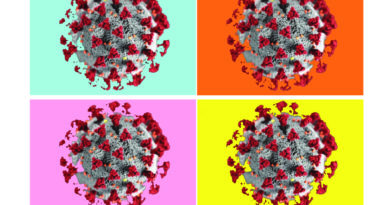Before Fatherhood: Men and Preconception Care
 For couples embarking on parenthood, a positive pregnancy test is usually the first indication that they’re heading into “parents-to-be” territory. This moment, for many, is the start of their pregnancy journey. But often, little thought has been given to the time before pregnancy occurs, before egg meets sperm.
For couples embarking on parenthood, a positive pregnancy test is usually the first indication that they’re heading into “parents-to-be” territory. This moment, for many, is the start of their pregnancy journey. But often, little thought has been given to the time before pregnancy occurs, before egg meets sperm.
Before conception
If you are a woman reading this, you may have taken folic acid tablets, overhauled your food intake, and cut down on alcohol before trying to get pregnant. If you are a man, the chances are you probably made few (if any) changes to your life before trying for a baby.
The aim of preconception care is to reduce the chances of poor health in the mother and the baby during and after pregnancy. And if there are any pregnancy risks that cannot be reduced or changed, then parents-to-be need to think about their options and choices.
Preconception care is an opportunity for both partners (not just the woman) to enhance health, change lifestyles, and make sure any medical problems are under control, or at least being managed well.
Sperm quality
Although preconception care tends to focus on women, a man’s health before conception is also very important. Preconception care in men deserves a higher profile than it currently gets. It is a chance to improve sperm quality. The genetic material contained in a single sperm can become damaged in lots of different ways, which can cause birth defects or result in miscarriages.
What influences sperm?
Factors believed to have negative effects on sperm quality include smoking, heavy drinking, taking anabolic steroids (in body builders, for example), and using drugs such as marijuana and cocaine.
Some medical conditions such as diabetes are known to have adverse effects on sperm quality. The presence of a varicocele (which involves the veins of the testicles) or an inflammation of the testicles can also determine sperm quality and production.
You may need to stop taking certain medications, and even wait for time to pass after stopping, before trying to conceive. If you are taking any medications regularly, it is worth checking with your doctor to see if this applies to you.
Depending on your job, you may be vulnerable to occupational hazards. Heavy exposure to solvents in paints and glues, or metals such as lead and mercury, or radiation, or exposure to pesticides and other agricultural substances may impair the genetic material in sperm.
Hot tubs and saunas
Keeping your testicles a little cooler than the rest of the body is something many men have heard about. Does wearing tight underpants, or excessive use of hot tubs, saunas, and hot baths, or resting a laptop on your lap for hours, or too much cycling reduce the quality of your sperm? The evidence is not clear and varies depending on which study you look at. Having said that, it seems a sensible-enough precaution to avoid these situations if you can.
Other practical aspects of preconception care in men
Before trying for a baby, get yourself checked and treated for sexually transmitted infections. Also, think through your own medical history, as well as your family’s medical history. There may be certain sex-linked or genetic conditions in family members that you need to be aware of. Being a healthy weight is important, too, as obesity is linked with poor sperm quality.
Emotional aspects of preconception care in men
The time before trying for a baby is the perfect time to make shared decisions about contraception and planning for a family. This gives you space to start thinking about fatherhood, your roles and responsibilities, the support you need, and the support you can offer. For some men, this chance to focus on their own well-being is rare and can be beneficial – not just for future fatherhood, but for future health in general.
The reality
Of course, many pregnancies are completely unplanned. Perfectly healthy babies are born to couples where the only “preconception planning” that took place was deciding not to use contraception, or forgetting contraception, or contraception not working.
Good preconception care does not guarantee a couple will get pregnant, nor does it guarantee a smooth pregnancy. What preconception care can do is help both partners get to optimal fitness both physically and mentally, before the challenges of parenthood (whether motherhood or fatherhood).
A word on fertility problems
Around one-third of fertility problems are due to male factors. In general, if you and your partner are having problems after one year of trying to get pregnant, you should ask for medical advice.
By Dr. Jahura Hossain
Born and brought up in London, Jahura is a U.K.-qualified doctor. She has worked in hospitals, general practice, public health, prison medicine, and the pharmaceutical industry.
Illustration by Laura Munteanu
Laura has studied Journalism and Advertising, and has been working as a journalist and an illustrator. She has been illustrating for magazines, websites, charity and different campaigns. She lives in Zurich with her husband and their six-year-old daughter.
© Copyright. Jahura Hossain. 2014. All rights reserved. No part of this article may be reproduced without the express consent of the author.




My husband had a varicocele, and we took Fertility Blend Male Vitamins which are available in the US. The contents, which include L-Carnitine, has been scientifically proven to really help the sperm. Many infertility specialists in the US recommend this.
Hello Barbara. Thank you for taking the time to comment. It’s interesting to hear what fertility specialists in other countries recommend.